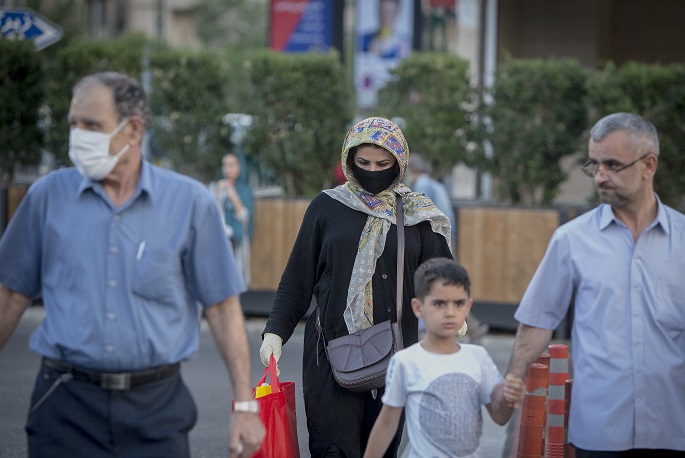Iran's daily coronavirus infections hit record high amid fears of new wave
Published : 05 Jun 2020, 00:59
Iran's Ministry of Health and Medical Education on Thursday reported 3,574 new cases of COVID-19, the highest daily count since the outbreak of the disease in the country in February, reported news agency Xinhua.
Iran's tally of COVID-19 cases soared to 164,270 on Thursday while the death toll rose to 8,071, the highest in the Middle East.
Kianush Jahanpur, head of Public Relations and Information Center of the health ministry, said that Iran's southwestern province of Khuzestan still remains a "red zone" over the pandemic and several other provinces in the west and south of the country are in a "seriously alarming state."
"Personal and public sanitary requirements, wearing masks and avoiding unnecessary social interactions are still in force," Jahanpour said, dismissing that the situation in the cities have returned to normalcy after easing restrictions pertaining to COVID-19.
He expressed the hope that people would observe health instructions to help the condition in some regions of the country turn to a "favorable" state.
Some Iranian officials have warned that a second wave of infections might be underway.
According to an article released in Iran's daily Arman Melli, Saeed Namaki, the Minister of Health and Medical Education, criticized "ignoring health protocols in domestic flights and in the holy shrines."
Recalling his recent trip to Mashhad in the northeast of the country, Namaki said, "I really saw saddening scenes on my way to and from (Mashhad). I boarded a plane where people had sit close to each other ... In the warm climate (inside the plane), people had removed their masks, provided by the flight attendants, and were talking to each other," the daily reported.
The health minister also complained about the way people disregarded health dictations in Imam Reza holy shrine in Mashhad.
The Iranian minister also warned about what some officials try to picture a "normalization of situation" in the country amid coronavirus struggles.
In the face of a new surge of the pandemic in some parts of the country, the authorities in the capital Tehran have mandated the use of masks in public transportation means, including subways and buses.
In a recent interview, Seyyed Ahmad Hashemi, head of North Khorasan University of Medical Sciences, said that "some people think the disease has ended, so they do not care about the health protocols."
Hashemi, an expert in infectious diseases, said "the soaring infections are also linked to the increasing number of tests across the country and the tracing factor."
Iran reported the first cases of the disease on Feb. 19, and the officials decided to impose a major lockdown on economic and cultural sectors thereafter.
In early April, Iran announced a gradual reopening of its economy and easing of restrictions on social interactions under the plan of "smart distancing."
Last week, Iran allowed partial reopening of the holy shrines. All employees have returned to work since Saturday and high-risk places of businesses, such as gyms and beauty salons, have also reopened for business.
Mosques, malls and holy sites have opened under social distancing rules, but wedding ceremonies, universities, cinemas and indoor cultural gatherings remain banned.


